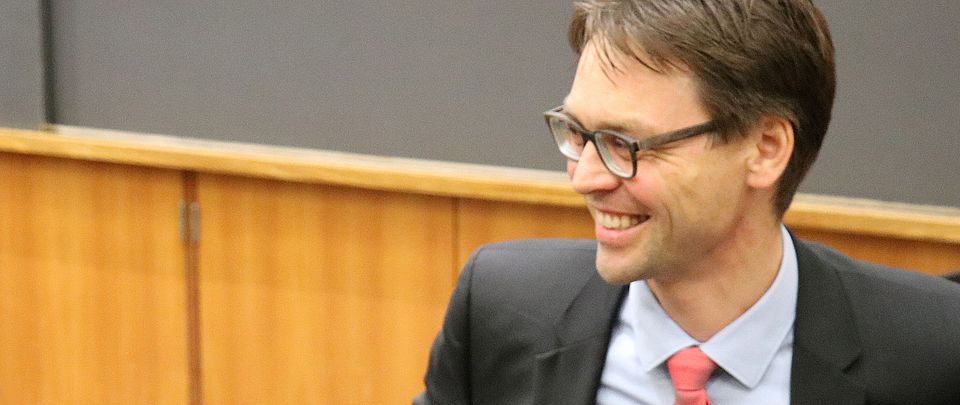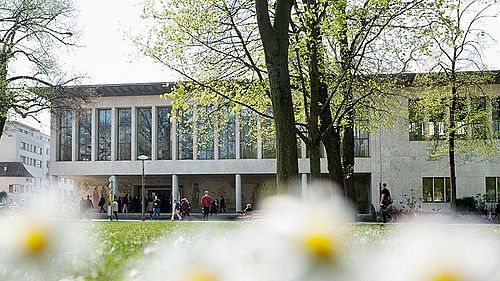Global Strategy for Multinational Companies
by Prof. Bradford Jensen
The objective of the course is to develop an understanding of the range of options multinational companies (MNCs) have for responding to challenges and opportunities in the global economy. The course will investigate how MNCs respond in the market (taking the environment as given) and how MNCs pursue “non-market” strategies to influence their operating environment (seeking to affect public policy).
The course will review and apply foundational conceptual frameworks from international trade [discussed in Rolf Weder’s course Advanced International Trade and Business] for how MNCs should respond in a given policy environment – how best to adjust to changes in exchange rates, tariffs, non-tariff barriers, etc.
The course will present foundational ideas from economics, political science, and international political economy regarding how the policy environment is determined. The course will investigate the range of policies that can influence firm behavior (e.g. trade, tax, competition policy) and how firms have attempted to influence the policy environment through non-market strategy in the past.
The key ideas in the course will be applied in “real-world” settings in a series of case studies.
Monday, 11 July 2022: 9:30 - 12:00
Tuesday, 12 July 2022: 9:30 - 12:00
Wednesday, 13 July 2022: 9:30 - 12:00
Thursday, 14 July 2022: 9:30 - 12:00
Monday, 18 July 2022: 9:30 - 12:00
Tuesday, 19 July 2022: 9:30 - 12:00
Wednesday, 20 July 2022: 9:30 - 12:00
Thursday, 21 July 2022: 9:30 - 12:00
Solid understanding of business and economics on the bachelor level. The lecture 10625 Advanced International Trade and Business is recommended as a prerequisite.
Especially recommended for students with a major in "International Business, Trade and the Environment”.
The assessment will include a project and a final exam. Date of final exam: 25 July 2022.
This course will be counted in the following degree programs in the respective modules:
Master's Studies: Business and Economics (Start of studies before 01.08.2021)
Module: Specialization Module: International Trade, Growth and the Environment
Master's Studies: Business and Economics (Studium Generalis)
Module: Specific Electives
Master's Studies: Business and Economics (Specialization: Data Science and Compuational Economics)
Module: General Electives in Data Science and Computational Economics
Master's Studies: Business and Economics (Specialization: Finance, Controlling and Banking)
Module: General Electives in Finance, Controlling and Banking
Master's Studies: Business and Economics (Specialization: International Business, Trade, and the Environment) - starting in fall 2022
Module: Core Courses in International Business, Trade, and the Environment
Master's Studies: Business and Economics (Specialization: International Trade, Growth and the Environment)
Module: Core Courses in International Trade, Growth and the Environment
Master's Studies: Business and Economics (Specialization: Labor Economics, Human Resources and Organization)
Module: General Electives in Labor Economics, Human Resources and Organization
Master's Studies: Business and Economics (Specialization: Marketing and Strategic Management)
Module: General Electives in Marketing and Strategic Management
Master's Studies: Business and Economics (Specialization: Monetary Economics and Financial Markets)
Module: General Electives in Monetary Economics and Financial Markets
Master's Studies: Business and Technology
Module: General Electives in Business and Technology
Master's Studies: Economics - starting in fall 2022
Module: Generral Electives in Economics
Master's Studies: Economics and Public Policy
Module: General Electives in Economics and Public Policy
Master's Studies:European Global Studies
Vertiefungsmodul Global Europe: Handel und Unternehmen in der Globalisierung
Lecturer
Wirtschaftswissenschaftliche Fakultät
News
Events
Ort: Zoom
Veranstalter:
MBA Finance | Executive Master in Finance (MiF)
Digital Info Session | MBA Finance | Executive Master in Finance (MiF)
🚨 Financial professionals, take notice 👇🏼Ort: Zoom
Veranstalter:
CAS Sustainable Real Estate
Digital Info Session | CAS Sustainable Real Estate
Do you have a passion for advancing sustainability where it truly counts? Unlock your potential to transform real estate investment for a sustainable future with our “CAS Sustainable Real Estate” at the University of Basel.Ort: WWZ Auditorium
Basel Capital Market Days 2026 | 5. Ausgabe
Anlegen in Zeiten geopolitischer UnsicherheitOrt: Zoom
Veranstalter:
MBA Marketing and Business Development
Digitaler Infoabend des MBA Marketing and Business Development
Schenk dir selbst Zukunft – mit dem MBA der Universität BaselWWZnewsletter
People
Research Centers
Die Wirtschaftswissenschaftliche Fakultät
Gegründet 1460 ist die Universität Basel die älteste Hochschule der Schweiz. Die Wirtschaftswissenschaftliche Fakultät ist die zweitjüngste der insgesamt sieben Fakultäten der Universität Basel und wurde 1995 etabliert. Das Fach Ökonomie konnte zu diesem Zeitpunkt jedoch schon auf eine fast 150-jährige Tradition in Basel zurückblicken.
WWZ Forum
Das WWZ Forum koordiniert und betreut die durch den Förderverein unterstützten Forschungsprojekte, pflegt den Kontakt mit bestehenden und zukünftigen Sponsoren und ist für den Wissenstransfer der in der Forschung erarbeiteten Inhalte verantwortlich.
Quick Links
Social Media
Quick Links
Social Media















































